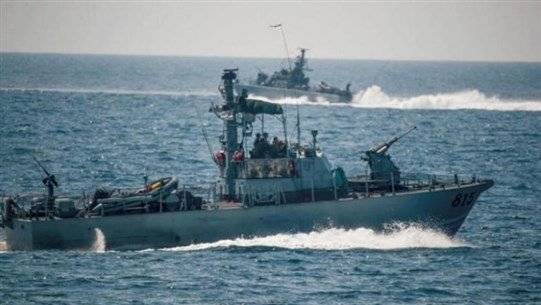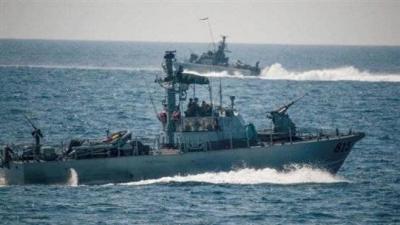Lebanon is awaiting the arrival of American mediator Amos Hochstein for the maritime border demarcation file between Lebanon and Israel, expected by the end of this week, to see what initiatives he brings to resolve the border dispute. Lebanon insists on American mediation and diplomatic efforts to avoid tensions and contain any escalation along its southern borders. Last Sunday, a vessel operated by the London-based company Energean arrived at a gas field that Lebanon claims is within disputed waters. Israel asserts that the Karish field, located about 80 kilometers west of Haifa, is part of its exclusive economic zone. On Monday, Israel stated that the dispute is a “civil matter” that should be resolved diplomatically through American mediation.
Lebanon has taken steps to invite the American mediator to Beirut to address the emerging developments. House Speaker Nabih Berri confirmed yesterday that Hochstein will visit Lebanon on Sunday or Monday to discuss the maritime border demarcation. Additionally, the Lebanese presidency announced that President Michel Aoun is following up on ongoing communications to address the developments that have arisen following the maritime operations by the Energean Power gas production vessel off the disputed maritime boundary. It was reported that the American mediator “will arrive in Beirut over the weekend or early next week, at the request of the Lebanese side, to discuss completing the negotiations for maritime border demarcation and working to conclude them as soon as possible.” It was noted that Aoun received reports from the military leadership regarding the vessel's movements off the maritime boundary.
The reliance on a diplomatic solution through activating American mediation aims to defuse the tensions that arose after the production vessel's arrival at the Karish field. Lebanese sources directly connected to the issue indicated that a diplomatic solution based on Lebanon obtaining its full rights is the only way to defuse the dispute, stressing in statements to Al-Sharq Al-Awsat that tensions “still exist as long as there is an Israeli claim to a supposed right in Lebanon’s exclusive economic zone,” emphasizing that “Lebanon is not the aggressor; rather, Israel is the one encroaching on Lebanon’s economic zone.” The Lebanese sources denied knowledge of whether Hochstein would bring a comprehensive solution with him during the anticipated visit on Sunday, stating: “There was insistence on hurrying up his visit because the situation is bad, and it is essential for him to resume his role as a mediator between the two sides.” Israel also extended an invitation as expressed by Israeli Defense Minister Benny Gantz, who stated that the dispute with Lebanon “is a civil matter that will be resolved diplomatically with American mediation.”
The Lebanese sources said: “Nothing is definitive yet regarding what Hochstein will bring; the only constant is the framework agreement announced by President Berri at the beginning of October 2020, which stipulates the demarcation of maritime borders and the definition of each party’s territorial waters and exclusive economic zone.” They emphasized that the framework agreement “is the only formula and mechanism available for demarcating the borders and resolving the dispute.”
Prime Minister Najib Mikati reiterated that “the Lebanese state is monitoring the developments of this sovereign file, which is being addressed through diplomatic means to achieve positive results and to revive the indirect negotiations again.” He stressed “the importance of keeping this file out of internal debates and political calculations, as it concerns all Lebanese and preserves Lebanon’s rights in its waters, natural resources, and stability,” following discussions and calls for the executive authority to sign amendments to Decree No. 6433, which Lebanon submitted to the United Nations in 2010. This decree states that point 23 is the Lebanese border, while the amendment states that point 29 is the official maritime border, expanding the area of dispute to 2,290 kilometers instead of 860 kilometers. Political tensions escalated in the past three days against the backdrop of calls to sign the amended decree, with the country witnessing political alignments, noting that the field Israel intends to produce from in the third quarter of this year has been explored and developed for eight years.
Lebanese estimates emerged yesterday that Lebanon faces two choices: either to choose the Hof Line (which divides the disputed area of 860 kilometers between the two sides) or the Hochstein Line (which claims 20 percent of the area that Lebanon considers its right). However, Lebanese sources following the issue confirmed to Al-Sharq Al-Awsat that “the Hof Line has long been obsolete after being proposed by American envoy Frederick Hof in 2012,” adding that Hochstein's initiative “was met with a unified Lebanese position following the meeting of Presidents Aoun, Berri, and Mikati on March 18, where they called for the American mediator to resume his activities according to the framework agreement,” stressing that Lebanon is committed to its full rights.
The United Nations supports Lebanon's call to resume diplomatic negotiations, stating yesterday that it encourages Lebanon and Israel to resolve any disputes through negotiations. The organization noted it is aware of the arrival of a floating storage and offloading vessel to the Karish gas field to commence gas production for Israel in a maritime area disputed with Lebanon. UN Spokesman Stéphane Dujarric stated that “we are closely monitoring the situation and Joanna Veronika, the UN Special Coordinator for Lebanon, is in contact with senior Lebanese officials regarding this matter.” He added: “It is important to emphasize that we encourage both Israel and Lebanon to resolve any disputes through dialogue and negotiations.”
Dujarric confirmed that when the framework agreement between Lebanon and Israel for maritime border demarcation was launched, announced in October 2020, UN Secretary-General António Guterres stated at that time that the UN would remain fully committed to supporting the process “as requested by the parties and within our capacity and mandate.” The United States also supports the resumption of negotiations. U.S. State Department spokesman Ned Price said in a press briefing on Monday that reaching an agreement on maritime borders is possible “if both sides negotiate in good faith and achieve benefits for both countries. To this end, we strongly support efforts to reach an agreement that benefits both sides.”




